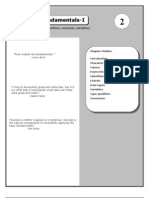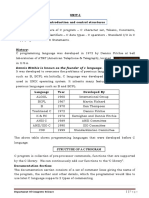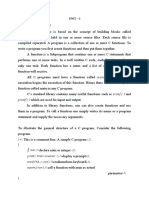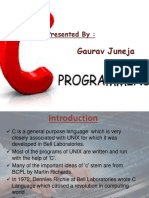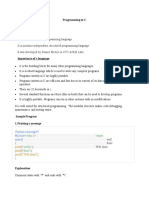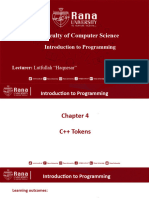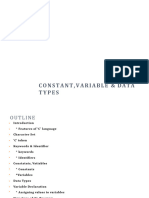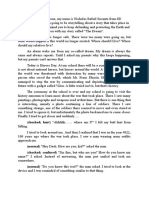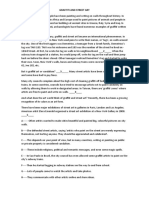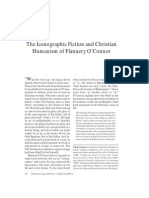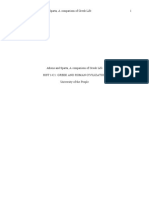0% found this document useful (0 votes)
8 views13 pagesLesson 10 - Tokens
The document provides an overview of tokens in C programming, detailing their types including keywords, literals, constants, identifiers, operators, and special characters. It explains the significance of each type, rules for creating identifiers, and syntax for defining constants. Additionally, it includes examples to illustrate the concepts discussed.
Uploaded by
Gretchen PazCopyright
© © All Rights Reserved
We take content rights seriously. If you suspect this is your content, claim it here.
Available Formats
Download as PPTX, PDF, TXT or read online on Scribd
0% found this document useful (0 votes)
8 views13 pagesLesson 10 - Tokens
The document provides an overview of tokens in C programming, detailing their types including keywords, literals, constants, identifiers, operators, and special characters. It explains the significance of each type, rules for creating identifiers, and syntax for defining constants. Additionally, it includes examples to illustrate the concepts discussed.
Uploaded by
Gretchen PazCopyright
© © All Rights Reserved
We take content rights seriously. If you suspect this is your content, claim it here.
Available Formats
Download as PPTX, PDF, TXT or read online on Scribd
/ 13
